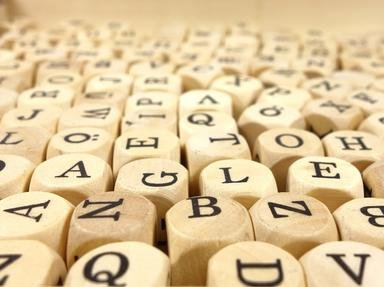Quiz Answer Key and Fun Facts
1. Replace a letter in CLOCK to get a herd of animals.
2. Replace a letter in your last answer to get a verb meaning "to publicize or promote".
3. Replace a letter in your last answer to get a word meaning "sluggishness".
4. Replace a letter in your last answer to get a word meaning "to slap".
5. Replace a letter in your last answer to get "food eaten between regular meals."
6. Replace a letter in your last answer to get "an organized pile".
7. Replace a letter in your last answer to get the simple past tense of a word meaning "to smell foul".
8. Replace a letter in your last answer to get an old Scottish word for "stone".
9. Replace a letter in your last answer to get "no longer fresh".
10. Replace a letter in your last answer to get a word meaning "to risk loss of".
Source: Author
VBookWorm
This quiz was reviewed by FunTrivia editor
Fifiona81 before going online.
Any errors found in FunTrivia content are routinely corrected through our feedback system.

